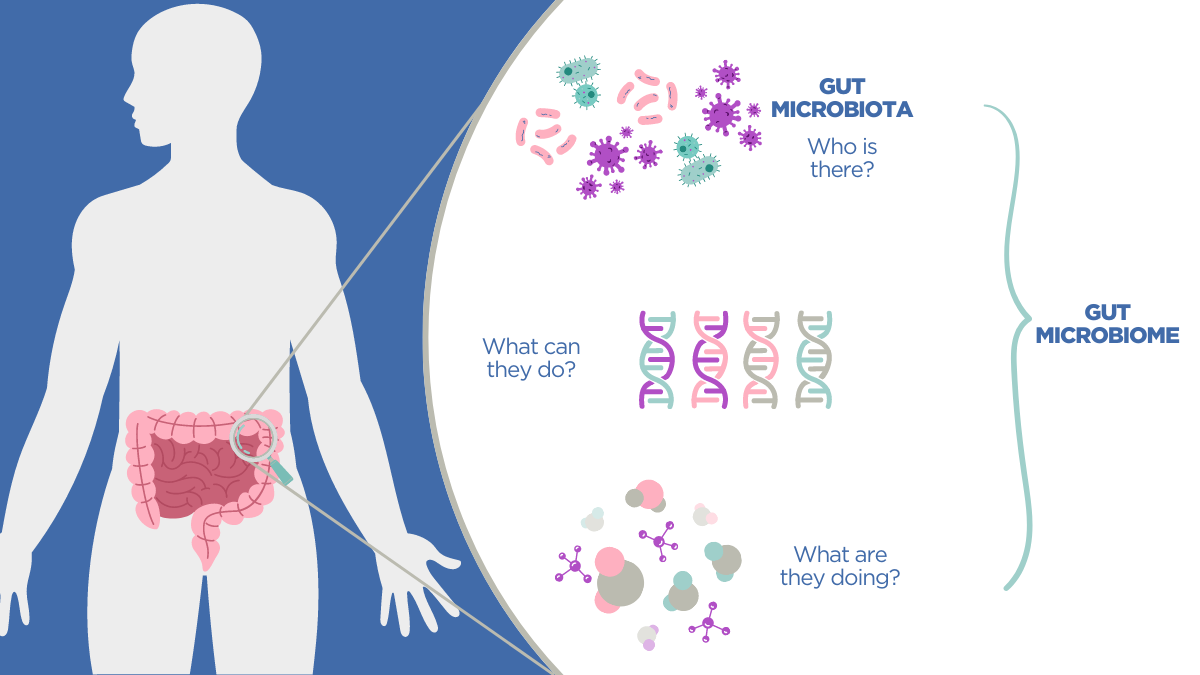Did you know that the trillions of bacteria living inside your gut might hold clues about the health of your liver?Emerging research is uncovering a fascinating connection between our gut microbiome and the development of fatty liver disease.
In this blog post, we’ll explore this link and discuss how a healthy gut might be crucial for protecting your liver.
What is Fatty Liver Disease?
Fatty liver disease occurs when excess fat accumulates in your liver. There are two main types:
- Non-alcoholic fatty liver disease (NAFLD): The most common type, linked to obesity, insulin resistance, and metabolic syndrome.
- Alcoholic fatty liver disease: Results from excessive alcohol consumption.
Early stages of fatty liver disease often cause no symptoms, but it can progress to more serious conditions like NASH (non-alcoholic steatohepatitis), fibrosis, cirrhosis, and even liver cancer.
The Gut Microbiome: Your Internal Ecosystem
Your gut is home to a vast community of bacteria, fungi, and viruses collectively known as your gut microbiome. This microscopic metropolis plays a crucial role in:
- Digestion
- Immune function
- Nutrient absorption
- Mental health
- And much more!
How the Gut Impacts Your Liver
Here’s how your gut microbiome can influence the development of fatty liver disease:
- Gut Permeability: A leaky gut allows bacterial products like lipopolysaccharides (LPS) into your bloodstream,triggering inflammation in the liver.
- Bile Acid Metabolism: Gut bacteria help transform bile acids, which play a role in fat digestion and metabolism.An imbalance in bile acids can contribute to fat buildup in the liver.
- Short Chain Fatty Acid (SCFA) Production: Your gut bacteria ferment dietary fiber, creating SCFAs. These can reduce fat accumulation in the liver and have anti-inflammatory effects.
| Mechanism | Description | Potential Impacts |
|---|---|---|
| Increased Gut Permeability (“Leaky Gut”) | A compromised gut barrier allows bacterial products (like LPS) to enter the bloodstream, travelling to the liver and promoting inflammation. | Contributes to the development of NASH (non-alcoholic steatohepatitis), a more severe form of fatty liver disease. |
| Altered Bile Acid Metabolism | Gut bacteria play a role in transforming bile acids, which are important for fat digestion. Dysbiosis can lead to imbalances in bile acids that contribute to fat buildup in the liver. | May increase risk of both NAFLD and alcoholic fatty liver disease. |
| Disrupted Short Chain Fatty Acid (SCFA) Production | Beneficial gut bacteria produce SCFAs from dietary fiber. SCFAs have anti-inflammatory effects and can help regulate fat metabolism in the liver. | Reduced SCFA production could worsen liver inflammation and contribute to fat accumulation. |
The Importance of a Healthy Microbiome
Research suggests that people with fatty liver disease often have altered gut flora or “dysbiosis.” Promoting a healthy gut microbiome could be part of preventing or managing fatty liver disease. Here’s how:
- Eat a fiber-rich diet: Fruits, vegetables, whole grains, and legumes nourish beneficial gut bacteria.
- Include fermented foods: Yogurt, kefir, sauerkraut, and kimchi provide live bacteria that support gut health.
- Limit processed foods, sugar, and unhealthy fats: These can disrupt your microbiome balance.
- Talk to your doctor about probiotics: Probiotic supplements could potentially help rebalance gut bacteria, but more research is needed.
Conclusion
The gut-liver connection is an exciting area of research. While more studies are needed to fully understand how the gut microbiome impacts fatty liver disease, a healthy diet and lifestyle that promotes a balanced gut ecosystem is likely a powerful tool for protecting your liver health.
Originally posted 2024-05-06 14:08:50.



